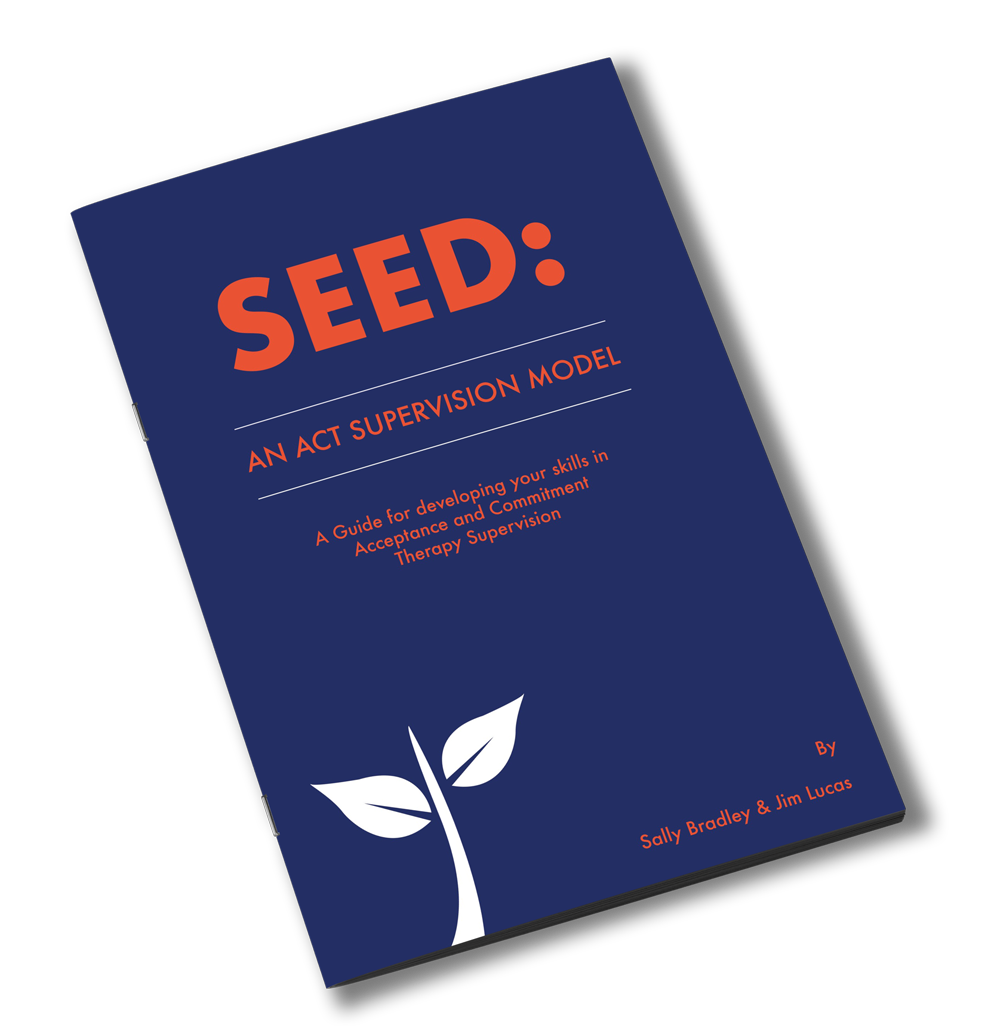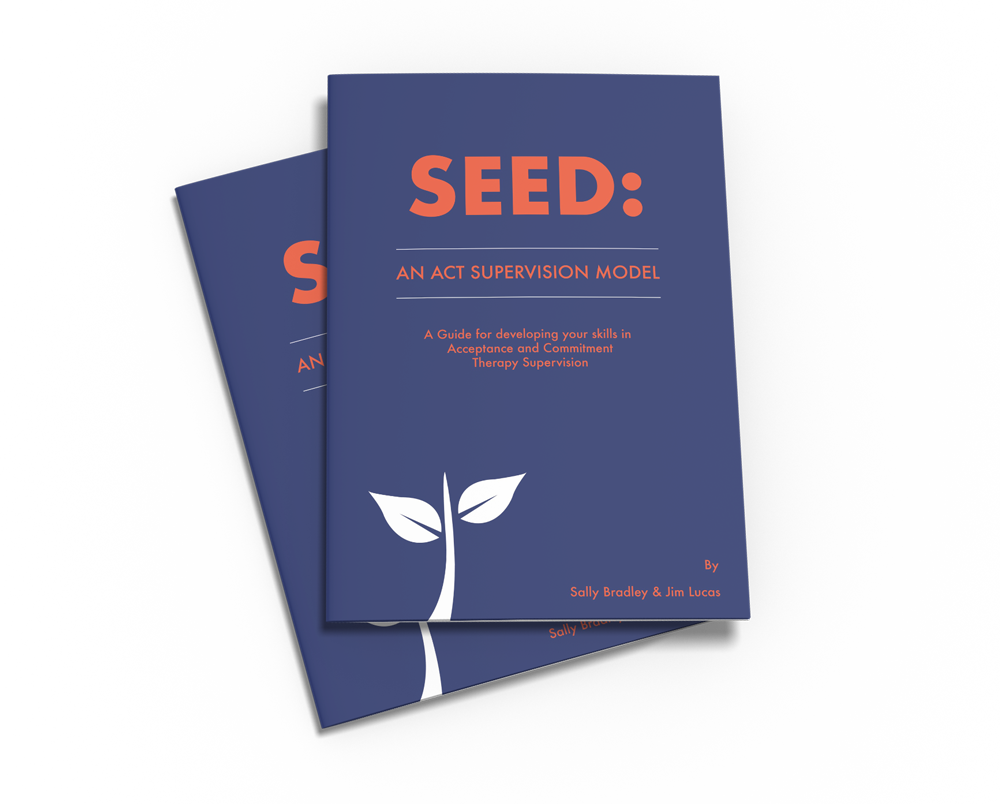
Become an Effective Supervisor in Acceptance and Commitment Therapy
Download our Guide to get started offering ACT Supervision
Do you doubt your readiness or skills to offer ACT-focused consultation?
Would you like a step-by-step approach to delivering consistent, contextual behavioural supervision?
Then look no further.
We have developed a guide to help you build your Acceptance and Commitment Therapy Supervision skills.
After reading our guide, you will have a clear understanding of how to:
- Create a safe learning environment for you and your supervisees
- Explore Functional Analyses to make your interventions more precise
- Experiment with experiential methods to support skill development
- Incorporate Deliberate Practice routines into your supervisory relationships

We present you with the SEED model for ACT supervision. It has been cultivated based on our experience of delivering supervision workshops and seeking feedback from our supervisees. We hope it helps ACT therapists build their confidence and skill in delivering ACT consistent supervision.

Learn the SEED Model of Acceptance and
Commitment Therapy Supervision
This eBook will further your understanding and application of ACT Supervision. As well as introducing you to the SEED Model, we will summarise the main features of psychotherapy supervision to give you a sense of how it has evolved since its inception in the early twentieth century.
Describing the SHAPE Framework of Contextual Behavioral Supervision developed by Linda Nicholson and Eric Morris, will illustrate the components necessary to support an ACT Therapist’s development. We discuss the differences between frameworks and models in supervision and share the Four Phased Model of Emotional Awareness training developed by Sonja Batten and Andy Santanello, which is intended to reduce in-session experiential avoidance.
In writing this eBook, we wanted to help you begin the process of becoming a more proficient ACT Supervisor. We invite you to do some exercises that will bring together the heart and hands of supervision, preparing you to offer supervision.
Our guide provides examples of common challenges in supervision and details of how these were navigated. Instead of providing specific instructions on what to do, it offers insights into our discoveries, allowing you to draw on them should you face similar challenges.
The final section discusses ways of developing your supervisory practice through supervision of supervision and peer consultation practice. The ACBS community has been instrumental in our development and well-being, and we encourage you to connect, learn and enjoy longer-term relationships with fellow travellers.
Meet the Authors:
Jim Lucas and Sally Bradley published this eBook in January 2024. Jim and Sally are experienced ACT Supervisors and Therapists working in private practice in the UK. We met in a peer consultation group in Birmingham and have worked together on several projects, usually around supervision. We have delivered skills classes at ACBS conferences and for Contextual Consulting in February 2024.
We are members of the Association for Contextual Behavioral Science (ACBS), the home and global community for Acceptance and Commitment Therapy.
If you would like to contact us directly about supervision, training or writing opportunities, please visit our websites www.openforwards.com and www.aheadpsychology.com

Jim Lucas

Sally Bradley
Please download our eBook. It is free of charge. However, suppose you are in a financial position to do so, we request a small donation to the ACBS Foundation. This non-profit charitable foundation provides financial support for training, education, research, dissemination of information, and outreach that minimise human suffering and increase well-being.
Complete the short form to download your copy. If you have interested colleagues, please do not share your copy. Please advise them to complete the form so we can track how many people have downloaded it. We’ll also update them about training, future editions and other resources.

